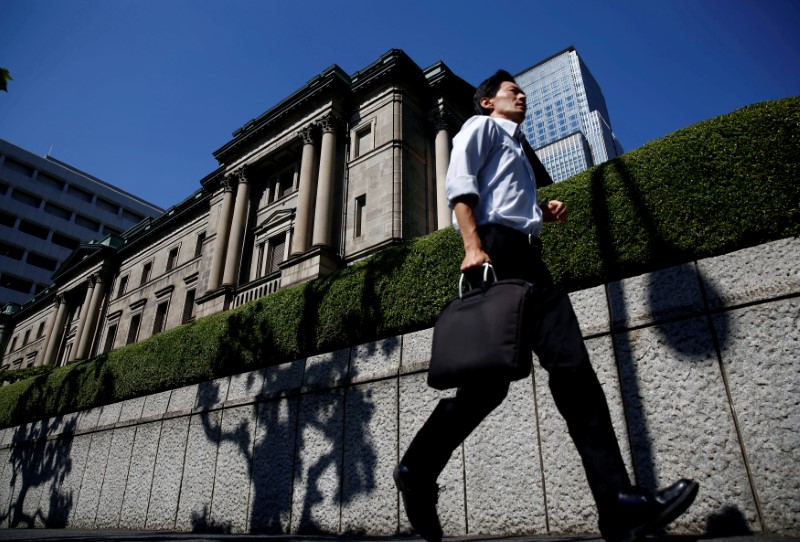By Stanley White
TOKYO (Reuters) - A lone Bank of Japan policymaker said additional easing was needed to accelerate inflation, but most members wanted to keep monetary policy unchanged, minutes from the central bank's policy meeting in April showed on Wednesday.
The minutes do not identify who spoke, but the call for additional easing most likely came from BOJ board member Goushi Kataoka, a reflationist economist who regularly votes against the BOJ's decisions to keep policy on hold.
Other board members are unlikely to support Kataoka because of worries over the side effects of prolonged quantitative easing, but the minutes highlight the scepticism the BOJ faces after ditching the timeframe for its 2 percent price target.
The BOJ kept policy unchanged at the April meeting but dropped the timeframe it had set for hitting its 2 percent inflation target, in a surprise move analysts say is aimed at keeping market expectations for more stimulus in check.
The minutes showed that no board member submitted a formal proposal for additional easing at the meeting in April, although one member advocated speeding up the economy by taking additional easing measures to boost inflation expectations.
Members were worried that by sticking with the forecast for when it expects to meet its inflation target the central bank could hamper communication with markets, the minutes showed, because investors were linking the forecast to changes in monetary policy.
One member expressed concern that deleting the timeframe would weaken the BOJ's commitment to price stability.
The BOJ may lower its forecasts for consumer price growth at its next meeting in July but is likely to keep monetary policy on hold, economists say.
"The BOJ is preparing itself for a long battle, because it has basically given up on quickly achieving its price target," said Norio Miyagawa, senior economist at Mizuho Securities.
"Kataoka may want to ease policy, but he cannot put this to a vote, because he knows he doesn't have any one else's backing."
Under its monetary easing policy, the BOJ guides short-term interest rates at minus 0.1 percent and the 10-year benchmark bond yield around zero percent via heavy buying of government debt.

Financial institutions have complained that the BOJ's policy has sucked liquidity out of the bond market and hurt bank profits.